1,3-Dinitro-2-chloro-5-trifluoromethylbenzene
Synonym(s):CDNT;DNT-Cl
- CAS NO.:393-75-9
- Empirical Formula: C7H2ClF3N2O4
- Molecular Weight: 270.55
- MDL number: MFCD00007068
- EINECS: 206-889-3
- SAFETY DATA SHEET (SDS)
- Update Date: 2024-12-18 14:07:02
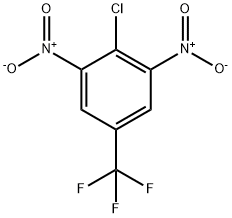
What is 1,3-Dinitro-2-chloro-5-trifluoromethylbenzene?
Chemical properties
yellow crystalline powder
The Uses of 1,3-Dinitro-2-chloro-5-trifluoromethylbenzene
4-Chloro-3,5-dinitrobenzotrifluoride is used as an important raw material and intermediate used in Organic Synthesis, Pharmaceuticals, Agrochemicals and Dyestuffs.
General Description
Yellow crystals.
Reactivity Profile
A halogenated aromatic nitro compound. Aromatic nitro compounds range from slight to strong oxidizing agents. If mixed with reducing agents, including hydrides, sulfides and nitrides, they may begin a vigorous reaction that culminates in a detonation. The aromatic nitro compounds may explode in the presence of a base such as sodium hydroxide or potassium hydroxide even in the presence of water or organic solvents. The explosive tendencies of aromatic nitro compounds are increased by the presence of multiple nitro groups.
Health Hazard
ACUTE/CHRONIC HAZARDS: Very toxic. Flammable. Irritant. Very hazardous decomposition.
Properties of 1,3-Dinitro-2-chloro-5-trifluoromethylbenzene
| Melting point: | 50-55 °C (lit.) |
| Boiling point: | >250°C |
| Density | 1.6 |
| Flash point: | 126°C |
| storage temp. | Sealed in dry,Room Temperature |
| solubility | water: insoluble |
| form | powder to crystal |
| color | Light yellow to Yellow to Orange |
| Water Solubility | Insoluble in water. |
| BRN | 1220937 |
| Exposure limits | ACGIH: TWA 2.5 mg/m3 NIOSH: IDLH 250 mg/m3 |
| Stability: | Stable. Incompatible with strong oxidizing agents. |
| CAS DataBase Reference | 393-75-9(CAS DataBase Reference) |
| NIST Chemistry Reference | Benzene, 2-chloro-1,3-dinitro-5-(trifluoromethyl)-(393-75-9) |
| EPA Substance Registry System | 4-Chloro-3,5-dinitrobenzotrifluoride (393-75-9) |
Safety information for 1,3-Dinitro-2-chloro-5-trifluoromethylbenzene
| Signal word | Danger |
| Pictogram(s) |
 Skull and Crossbones Acute Toxicity GHS06 |
| GHS Hazard Statements |
H302:Acute toxicity,oral H310:Acute toxicity,dermal H315:Skin corrosion/irritation H319:Serious eye damage/eye irritation |
| Precautionary Statement Codes |
P262:Do not get in eyes, on skin, or on clothing. P280:Wear protective gloves/protective clothing/eye protection/face protection. P305+P351+P338:IF IN EYES: Rinse cautiously with water for several minutes. Remove contact lenses, if present and easy to do. Continuerinsing. |
Computed Descriptors for 1,3-Dinitro-2-chloro-5-trifluoromethylbenzene
1,3-Dinitro-2-chloro-5-trifluoromethylbenzene manufacturer
BASR Fine Chemicals Pvt. Ltd.
New Products
4-Fluorophenylacetic acid 4-Methylphenylacetic acid N-Boc-D-alaninol N-BOC-D/L-ALANINOL Tert-butyl bis(2-chloroethyl)carbamate 3-Morpholino-1-(4-nitrophenyl)-5,6-dihydropyridin- 2(1H)-one Furan-2,5-Dicarboxylic Acid Tropic acid S-2-CHLORO PROPIONIC ACID ETHYL ISOCYANOACETATE 2-Bromo-1,3-Bis(Dimethylamino)Trimethinium Hexafluorophosphate (6-METHYL-[1,3]DITHIOLO[4,5-b]QUINOXALIN-2-ONE INDAZOLE-3-CARBOXYLIC ACID 4-IODO BENZOIC ACID (2-Hydroxyphenyl)acetonitrile 4-Bromopyrazole 5,6-Dimethoxyindanone 2-(Cyanocyclohexyl)acetic acid 4-methoxy-3,5-dinitropyridine 2-aminopropyl benzoate hydrochloride 1-(4-(aminomethyl)benzyl)urea hydrochloride diethyl 2-(2-((tertbutoxycarbonyl)amino) ethyl)malonate tert-butyl 4- (ureidomethyl)benzylcarbamate Ethyl-2-chloro((4-methoxyphenyl)hydrazono)acetateRelated products of tetrahydrofuran
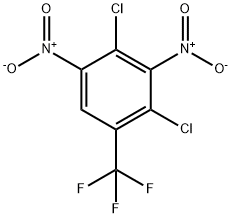
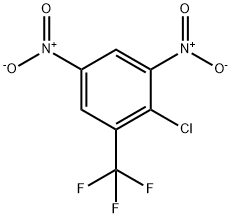


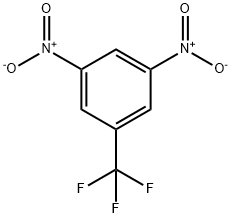
You may like
-
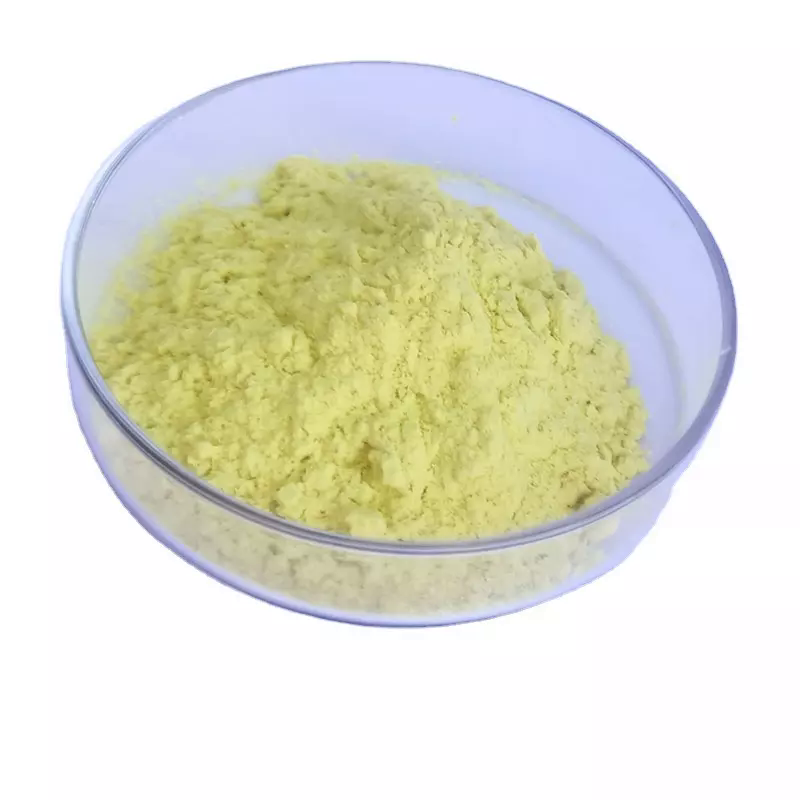 393-75-9 4-Chloro-3,5-dinitrobenzotrifluoride 98%View Details
393-75-9 4-Chloro-3,5-dinitrobenzotrifluoride 98%View Details
393-75-9 -
 393-75-9 98%View Details
393-75-9 98%View Details
393-75-9 -
 4-Chloro-3,5-dinitrobenzotrifluoride CAS 393-75-9View Details
4-Chloro-3,5-dinitrobenzotrifluoride CAS 393-75-9View Details
393-75-9 -
 4-Chloro-3,5-dinitrobenzotrifluoride CAS 393-75-9View Details
4-Chloro-3,5-dinitrobenzotrifluoride CAS 393-75-9View Details
393-75-9 -
 1975-50-4 98%View Details
1975-50-4 98%View Details
1975-50-4 -
 2-HYDROXY BENZYL ALCOHOL 98%View Details
2-HYDROXY BENZYL ALCOHOL 98%View Details
90-01-7 -
 14714-50-2 (2-Hydroxyphenyl)acetonitrile 98+View Details
14714-50-2 (2-Hydroxyphenyl)acetonitrile 98+View Details
14714-50-2 -
 118753-70-1 98+View Details
118753-70-1 98+View Details
118753-70-1